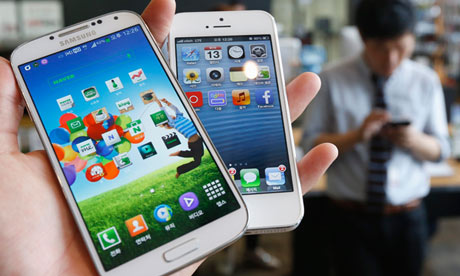
The Obama administration's last-minute decision to overturn the US import ban on Apple's iPhone 4 and 3G-capable iPad 2 looks at first like jingoistic favouritism. Samsung won this ban in the courts and you have to go back 26 years to Ronald Reagan's administration in 1987 to find the last time such a decision was reversed. (Though interestingly, the beneficiary of that 1987 decision was Samsung's memory chip business, opposed by American rivals.)
But the charge of favouritism doesn't stand up. First, Obama's justice department just whacked Apple in an anti-trust trial over ebook pricing; so no favouritism there.Second and more importantly: Samsung's ban was over "standards-essential patents" (SEPs) – the algorithms needed to comply with a standard. Apple had to use them to offer a 3G-compatible phone.
Without regulation and transparency, owners of SEPs can set ridiculous prices and create an extortionate climate for rivals.
The rivalry between Apple and Samsung is as bitter as they come. Samsung says Apple refused to license its patent; Apple, that Samsung was demanding a ridiculous price. The Obama administration, and many onlookers, think the latter.
Samsung has form here. It is being investigated by the European commission for precisely the same shenanigans – using SEPs to "distort competition". The commission indicated its displeasure and in December last year Samsung dropped its court action in Europe – precisely the sort of action it pursued in the US, and won. Fines could still be forthcoming.
The veto is really part of an Obama-led drive to force better behaviour from SEP owners. Anti-trust watchdog the Federal Trade Commission (FTC) has already extracted a pledge from Google's Motorola not to use its SEPs to demand sales bans (which it was trying against Microsoft's Xbox 360; it failed).
The likely outcome is that owners of SEPs – including Samsung – won't be able to charge so much, nor get import bans. That is a good thing: standards need to be open and accessible, else they aren't standards. It might hurt the valuation of Motorola, on which Google spent $12bn, and valued its patents at $5bn. That still looks ripe for a writedown. Maybe this will be the cue.

